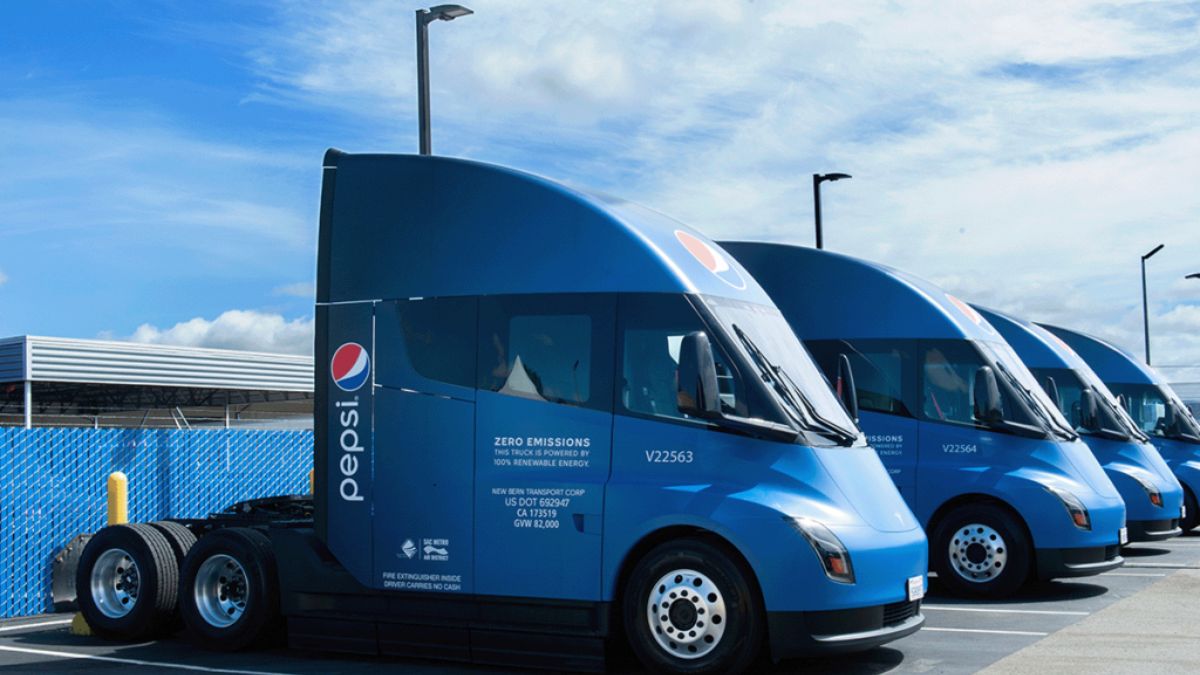Necessary Always Active
Necessary cookies are required to enable the basic features of this site, such as providing secure log-in or adjusting your consent preferences. These cookies do not store any personally identifiable data.
|
||||||
|
||||||
|
||||||
|

According to Yahoo Finance, Tesla and PepsiCo are taking another significant stride in electrifying commercial logistics with plans for a new Tesla Semi charging facility in Denver. This development strengthens their established partnership while addressing the critical need for robust electric truck infrastructure to support widespread commercial fleet operations.
Recent permit filings reveal that Tesla and PepsiCo are moving forward with plans to construct a six-stall Tesla Semi charging facility with PepsiCo at a Denver distribution center. This strategic installation will bolster PepsiCo’s pioneering adoption of the Tesla Semi while accelerating the broader shift toward sustainable freight transportation.
The planned Tesla Semi charging facility with PepsiCo serves dual purposes, supporting PepsiCo’s operational fleet requirements while functioning as a vital component in Tesla’s comprehensive commercial vehicle ecosystem expansion strategy.
This Denver project represents just one piece of a much larger infrastructure puzzle. PepsiCo has filed permits for an ambitious expansion in North Carolina, proposing to construct 18 new Tesla Semi charging stalls at a facility near Charlotte. These developments are integral to the Tesla-PepsiCo partnership infrastructure vision, which aims to establish high-capacity charging networks throughout the United States.
The partnership extends to California as well, where PepsiCo has successfully deployed Tesla Semis at Frito-Lay operations and continues expanding charging infrastructure to support regional delivery routes spanning California, Arizona, New Mexico, and Nevada.
The Tesla Semi charging facility with PepsiCo represents far more than additional charging infrastructure. This collaboration symbolizes Tesla’s strategic recovery following a challenging start to 2025, while showcasing PepsiCo’s dedication to sustainability objectives and operational cost optimization.
For PepsiCo the infrastructure development supports substantial fuel cost reductions, with California operations alone projected to save nearly $1 million annually, while advancing the company’s net-zero emissions commitments. For Tesla this partnership provides real-world validation of the Semi’s commercial viability and creates opportunities to refine the technology through large-scale deployment and testing. The aligned objectives within the Tesla-PepsiCo partnership infrastructure are actively reshaping the landscape of heavy-duty freight transportation.
Following a turbulent period marked by declining sales and reputational challenges, Tesla is positioning its Semi program as a cornerstone of its recovery strategy. The expansion of the Tesla Semi charging facility with PepsiCo network nationwide demonstrates Tesla’s commitment to establishing a comprehensive electric freight ecosystem.
The Tesla permits for new charging stalls across Denver, Charlotte, and Bakersfield collectively signal Tesla’s evolution from experimental pilot programs to full-scale logistics electrification. This infrastructure development will prove essential for scaling Semi production and accelerating market adoption. Earlier this year, we have also seen Tesla operating income fall as vehicle sales dip and credit revenue dries up.
The Tesla Semi charging facility with PepsiCo initiative represents a pivotal moment in sustainable freight transportation evolution. Through strategic hub development in Denver, North Carolina, and California, Tesla and PepsiCo are constructing more than vehicle deployment infrastructure, they are establishing the foundation for a comprehensive nationwide electric freight network.
As the Tesla-PepsiCo partnership infrastructure continues expanding, the Semi program’s success could fundamentally transform logistics industry standards for efficiency, sustainability, and cost-effectiveness across the entire trucking sector.